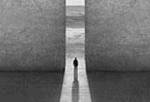These are quotes from Midnight Tides I just read, within a few pages. Earlier in the day I followed a Twitter link that asked how the Wheel of Time compares to the Malazan series, and, well, these following quotes are a good example of what you won’t likely find in the WoT.
Ten paces to Seren’s left was Hull Beddict, seated with his forearms on his knees, hands anchoring his head as he stared at the ground. He had neither moved nor spoken in some time, and the mundane inconsequentiality of their exchanged greetings no longer echoed between them, barring a faint flavour of sadness in the mutual silence.
‘Our skin is thick, after all——’
‘Born of our fixation on our so-called infallible destiny,’ she replied. ‘What of it?’
‘I used to think,’ he said, smile fading, ‘that the thickness of our … armour was naught but an illusion. Bluster and self-righteous arrogance disguising deep-seated insecurities. That we lived in perpetual crisis, since self-avowed destinies wear a thousand masks and not one of them truly fits—’
“We are just the fallen. You, me, the ghosts. All of us. We’re the dust swirling around the �ankles of the conquerors as they stride on into glory. In time, we may rise in their ceaseless scuffling, and so choke them, but it is a paltry vengeance, don’t you think?”
Fallen. Who tracks our footsteps, I wonder? We who are the forgotten, the discounted and the ignored. When the path is failure, it is never willingly taken. The fallen. Why does my heart weep for them? Not them but us, for most assuredly I am counted among them. Slaves, serfs, nameless peasants and labourers, the blurred faces in the crowd — just a smear on memory, a scuffing of feet down the side passages of history.
Can one stop, can one turn and force one’s eyes to pierce the gloom? And see the fallen? Can one ever see the fallen? And if so, what emotion is born in that moment?

